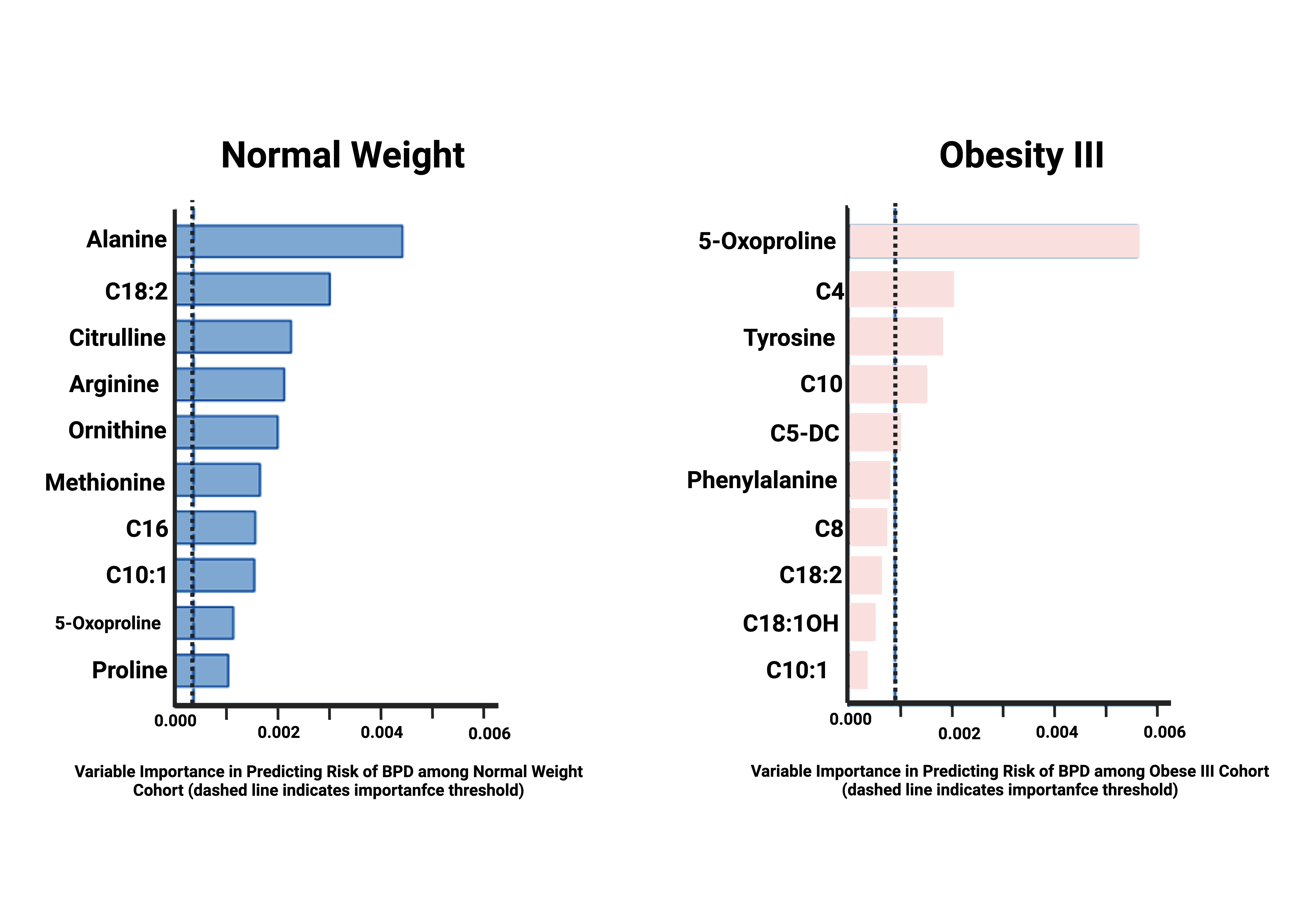Neonatology
Session: Neonatology Pulmonology Clinical Science 2 - Lung Development, Inflammation, Intrauterine environment
588 - Associations Between Metabolic Profiles and Bronchopulmonary Dysplasia in Neonates Born to Mothers with Obese Phenotype
Saturday, May 4, 2024
3:30 PM - 6:00 PM ET
Poster Number: 588
Publication Number: 588.1347
Publication Number: 588.1347

Jonathan Reiss, MD
Instructor
Stanford
Palo Alto, California, United States
Presenting Author(s)
Background: Epidemiologic studies have demonstrated that maternal obesity increases risk for bronchopulmonary dysplasia (BPD) by up to 40%. Identifying metabolic intermediaries that may contribute to the association between maternal pre-pregnancy body mass index (BMI) and BPD is critical in better defining the etiologies of these conditions.
Objective: We investigated risks associated with newborn metabolites for BPD in preterm infants exposed to maternal pre-pregnancy obesity. We hypothesized that elevated pre-pregnancy maternal body mass index (BMI) compared to a normal weight referent group, is associated with increased circulating short and long-chain acylcarnitines and subsequent development of BPD.
Design/Methods: This was a retrospective study with linkage of maternal pre-pregnancy BMI, with newborn screen metabolites obtained from the California Newborn Screen Program and further linked with neonatal outcomes including BPD. The analysis focused on singleton newborns delivered at 24 - 27 weeks’ gestational age. Risk of BPD for infants whose mothers had a pre-pregnancy BMI > 40 were compared to risk of BPD in infants whose mothers had a BMI 18.5 - 24.9. Analyses employed logistic regression and machine learning methods (random forest) to interrogate the interquartile distribution of each newborn screen metabolite for its risk of BPD.
Results: A total of n = 1203 maternal-infant dyads were included in the analysis. Short- and long-chain acylcarnitines showed elevated BPD risks but these these were not statistically significant. In logistic regression analysis adjusted for each metabolite, amino acids including phenylalanine and proline demonstrated an increased risk for BPD (OR 5.3, 95% CI 1.2- 23.8 and OR 5.4, 95% CI 1.3 - 22.3) in the obesity group compared to the nonobese referent group. C10 (OR 0.22, CI 0.06-0.82), arginine (OR 0.15, CI 0.04-0.54), and 5-oxoproline (OR 0.09, 95% CI 0.02- 0.36) demonstrated a decreased risk for BPD in the obesity group compared to the referent group.
Conclusion(s): Individual short- and long-chain acylcarnitines demonstrated a slight risk for BPD in neonates of mothers with severe obesity compared to mothers with normal BMI. Perturbations in phenylalanine and proline accentuated the risk for BPD in the obesity group. The findings suggest that interrogation of newborn screen metabolites may serve as a tool for developing individual metabolic profiles for conditions that link maternal conditions with newborn pathology.
.png)
.png)

